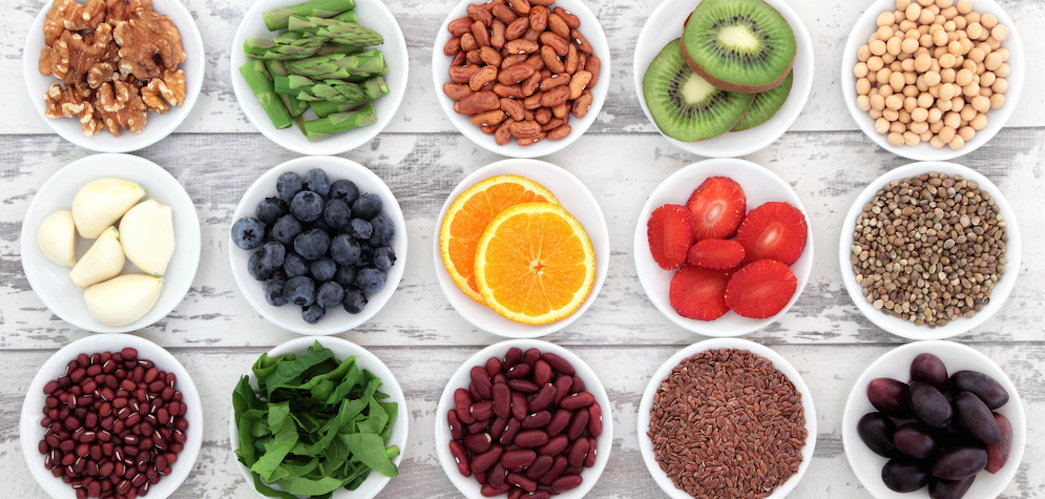In the game of health, there are many players who can help us win and prosper and in order to achieve success, we have to make the whole team ready and prepared.
One of the key players in our weight loss journey is our own hormonal system, which can facilitate our efforts and maximizes our results when it’s well balanced.
Today we’re going to know about three key players of our hormonal system and how they affect our health plus, we’ll take some easy steps to ensure that the system is well balanced.

Insulin
Secreted from the Pancreas, Insulin is considered a master hormone that massively affects metabolism and the fat-burning process as well as the action of other hormones.
The main role of insulin is to enable our cells to utilize sugar and protein. Being highly sensitive to carbohydrates, Insulin secretion is affected by the type and quantity of carbohydrates we consume during the day.
When does it go wrong?!
If you have a donut for breakfast, a chocolate bar mid-day, and a large can of soda with your lunch, simply you’re consuming too much of the refined carbohydrates which can be found in processed sugars, white flour products, and desserts. Those easily digested carbohydrates skyrocket your blood sugar which makes the hormonal system declare an emergency.
The pancreas starts pumping insulin-like crazy into your bloodstream to clear out the high levels of sugar which leads to a sudden drop in blood sugar levels aka “sugar crash”. That’s why you feel tired, grumpy, and hungry mid-day after you have a croissant for breakfast.
In the long run, eating a diet consisting mainly of processed foods can lead to type 2 diabetes, insulin resistance, and many other complications.
Moreover and since insulin is an anabolic hormone, it prefers to store fat, especially in the waist area, and prevents it’s burning for energy. That’s why one of the secrets of enjoying a healthy weight and higher energy is to keep your insulin levels under control.
Tips to master your insulin:
- Avoid processed carbohydrates … ditch that can of soda, avoid white flour and white sugar, and remember.. chocolate is a dessert, not a snack.
- Go whole: choose whole grain products like whole wheat, whole oatmeal, potatoes, and sweet potatoes.
- Cook like an Italian: Don’t overcook your pasta, let that baked potatoes be firm enough to bite, it’ll keep the glycemic index of your carbohydrates low enough to avoid spiking your insulin levels.

Cortisol
In our fast-paced life, it’s easy to fall victim to chronic stress, at work rushing to meet deadlines, at home trying to get the kids prepared for school, and when we are stuck in traffic jam day in and day out.
The state of chronic stress leads eventually to the chronic elevation of a hormone called Cortisol which is naturally released for short moments during an emergency.
Cortisol helps the body as part of the emergency survival mechanism by releasing more sugar into the bloodstream for fast energy as well as enhancing brain and muscle ability to utilize such energy, that’s why we can run like Usain Bolt when we encounter a barking dog in our way home at night. At the same time, cortisol curbs bodily functions that are not necessary during a fight or flight emergency like the immune and digestive systems.
When does it go wrong?
Long-term activation of the emergency mode can lead to negative consequences which affect our health and quality of life. These consequences include:
- Gaining weight easily
- Anxiety and depression
- Digestive problems like bloating and heartburn
- Low sex drive
- Sleep problems
Tips to master your cortisol
Sleep:
lack of sleep is one of the major factors contributing to chronic stress syndrome. Try to get between 7-9 hours of sleep per day.
Exercise:
Exercise is a natural anti-stress remedy. When we go out for a walk or attend a Zumba class our body releases endorphins which help us relax more and be in a good mood.
Eat well:
a healthy balanced diet is a sure way to combat stress. Try to have a diverse diet from all food groups to ensure that your body is getting all the nutrients it needs from natural sources.
Relaxation practices:
attend that yoga class, have a weekly massage session, and practice breathing exercises daily … they really work.
Estrogen

Estrogen is one of the main female hormones which plays an important role in ovulation and menses. However being a “feminine” hormone, estrogen is also produced by males in smaller quantities by the testes.
Estrogen levels vary during the female menstrual cycle and its production declines in post-menopausal women. Lack of estrogen is associated with obesity, especially in the abdomen. That’s why many women gain weight after hitting menopause.
When does it go wrong?
Any disturbance in estrogen levels or estrogen/progesterone balance in women can lead to several health problems, including obesity, an irregular menstrual cycle, and a higher risk of breast cancer.
While in men, a higher estrogen than normal is associated with pear shape obesity, sexual dysfunction, enlarged breasts, and general weakness.
Tips to master your estrogen:
- Discuss contraceptive options with your gynecologist other than hormonal birth control pills.
- Limit the use of plastic products like water bottles and plastic bags as they contain compounds called “Endocrine Disruptors” which play role in unbalancing estrogen levels. Make sure that the plastic products you use are marked “BPA free”.
- Consume fewer soy products as soy contains compounds that are similar to estrogen in structure and action “phytoestrogens”.
- Eat more Cruciferous vegetables like “cauliflower, cabbage, broccoli, and Brussels sprouts” as they hinder the overproduction of estrogen, especially in men.
- Eat a balanced diverse diet and choose pasture-raised poultry and organic meats over factory farm produce.
Dr. Kareem Gamal
Certified Nutrition Specialist
Member of the Egyptian Society of Nutrition




















